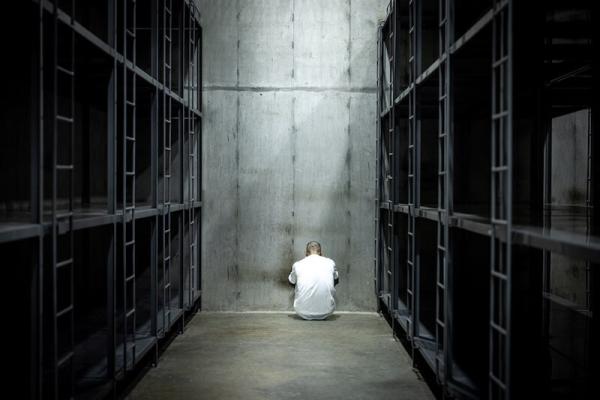“It’s a shame he missed.”
That was the first thought I had when I saw that someone had attempted to assassinate former President Donald Trump. My second thought was, “You shouldn’t think that — you consider yourself a peacemaker and pacifist.” I wondered how my Christian commitments could erode so quickly.
Within minutes, I saw I was far from the only one struggling through these thoughts. None of my left-leaning friends were posting that sentiment publicly, but my group texts and DMs were filled with private lamentation. Impulsively, we all seemed to agree things might be better if Trump had died. Reading these words only heightens my sense of shame.
I have long preached love for our enemies. I have long decried gun violence. And yet, my first impulse on hearing the news was to approve of the attempt and lament its failure. The impulse, however, wasn’t an erosion of my values so much as it was a subversion. It was a reminder that sin is systemic and proper spiritual formation takes time. Christians like me — peacemaking, gun-violence-opposing, nonviolent-resistance-supporting Christians — must still take the time to interrogate, and humbly confess, to the logic of empire and violence embedded within us.
Does political violence work?
Setting aside theological concerns (for a moment), what should we make of our hopes to defeat authoritarianism and fascism in one violent swoop?
As I wrestled with my thoughts, I found my impulse easy to justify: Despite the shooting, it remains true that Trump’s policies pose an existential threat to American democracy. Project 2025, a presidential transition plan from the conservative Heritage Foundation with ties to former Trump officials, veers toward a fascist autocracy. Might this be the exception to my peacemaking? Wouldn’t the U.S. be a more peaceful place without his violent, racist, sexist rhetoric?
The sobering reality is that my impulse doesn’t align with the facts of how fascist regimes rise and fall.
Our foreign policy history shows evidence for this. Reporting for the Boston Review in 2011, political scientist Alexander B. Downes writes that “since the defeat of Napoleon … the United States has been the world’s foremost practitioner [of regime change]” — responsible for more than twenty successful regime changes. We’ve done it all over the globe — Korea and Vietnam; Germany after World War II; Mexico, the Dominican Republic, Haiti, Chile, Nicaragua, Panama, and more. We’re very good at “removing” (quite a euphemism there) leaders we deem hostile to our interests and replacing them with someone who will be friendly to the U.S. But does it work?
More than 40 percent of countries that experience violent regime change erupt in civil war within the next decade. Any changes made to the country are often short lived and met with significant resistance from those who benefitted from the old leader. The removal of an authoritarian politician would go no differently here.
Moreover, Erica Chenoweth and Maria J. Stephan, in their book Why Civil Resistance Works, chart out the difference between violent and nonviolent change movements: Violent movements achieve at least some of their goals only about a third of the time; nonviolent movements are nearly twice as successful.
The removal of an authoritarian, whether by ballot or bullet, will not magically restore civility to American politics. The increasingly intransigent, authoritarian current in right-wing politics will remain. Removing a candidate won’t change that a majority on the Supreme Court is dedicated to ensuring authoritarian presidents are free from accountability. It won’t change the politics in states like Texas, where Gov. Greg Abbott deployed razor wire and buoys in a xenophobic attempt to try and keep out asylum seekers. Christians and political actors across the country continue to embrace Christian nationalism instead of a pluralistic, democratic politics.
Regimes do not fall because of the elimination of a single autocrat, and it’s foolish to imagine our circumstances would be any different.
Empire theology
So, what caused me to consider accepting political violence despite the irrationality? Despite my aspiration towards peacemaking and nonviolence, I have been formed by the logic of empire at a deep level.
Our desires arise from a part of our self that precedes conscious thought — from the place the Hebrew Bible calls the ‘heart’ (which is different from the contemporary Western use of heart as a metaphor for the seat of emotions). Because our desires are pre-rational, they can be fiendishly difficult to change. Desires are fact-proof and resilient.
We can’t reason our way to having holy desires, especially in an incoherent world. A world that claims to decry political violence while embracing violence as a solution at many other turns. A vendor at the Republican National Convention is giving away an AR-15, the same gun used in the assassination attempt that injured and killed rally attendees. President Biden has decried violence while supplying Israel with the weapons to wage genocide on Palestinians in Gaza. This incoherency may seem like whiplash or hypocrisy, as certain violence is embraced and other violence is denounced.
If we’re willing to interrogate our desires, they can be a good barometer for our spiritual health. Precisely because they’re pre-rational, arising from beyond and below our conscious thinking, they reveal the state of our innermost self. Our desires form a pathway to access and transform that inner-most self. This is the work of spiritual formation — the long, slow, and often unglamourous work of silence, meditation, prayer, fasting, and more.
Through spiritual formation, we learn to trust the cruciform way of Jesus in a world that insists otherwise. Spiritual practices create space for us to interrogate our desires in the presence of the Holy Spirit. We allow God to search us and point out anything that leads to death.
In this case, my inner desire for a successful assassination revealed how deeply afraid I am for myself, my communities, and my country. Empire feeds on that fear and tempts me to put my trust in the false promise of violence. I still doubt the cruciform path. The obscene liturgy of the American Empire has shaped some of my inmost parts. I have been formed to love violence even when I know it to be ineffective and cruel. Like Paul, I cry out, “Wretched person that I am! Who will rescue me from this body of death?” (Romans 7:24)
We cannot hope to work for the kind of change that lasts, change that liberates both victim and victimizer, unless we can learn to walk the path of Jesus — the path that eschews violence precisely because it is the chief weapon of the empire.
Authoritarian regimes seem invincible, but they are not. In the days of the New Testament authors, the light of Jesus’ resurrection helped reveal the truth of peace and the lies of violence. John the Revelator told believers, who lived under the boot of Rome, to heed a heavenly voice which declared: “Come out of her, my people, so that you do not take part in her sins and so that you do not share in her plagues.” (Revelation 18:4).
Got something to say about what you're reading? We value your feedback!







